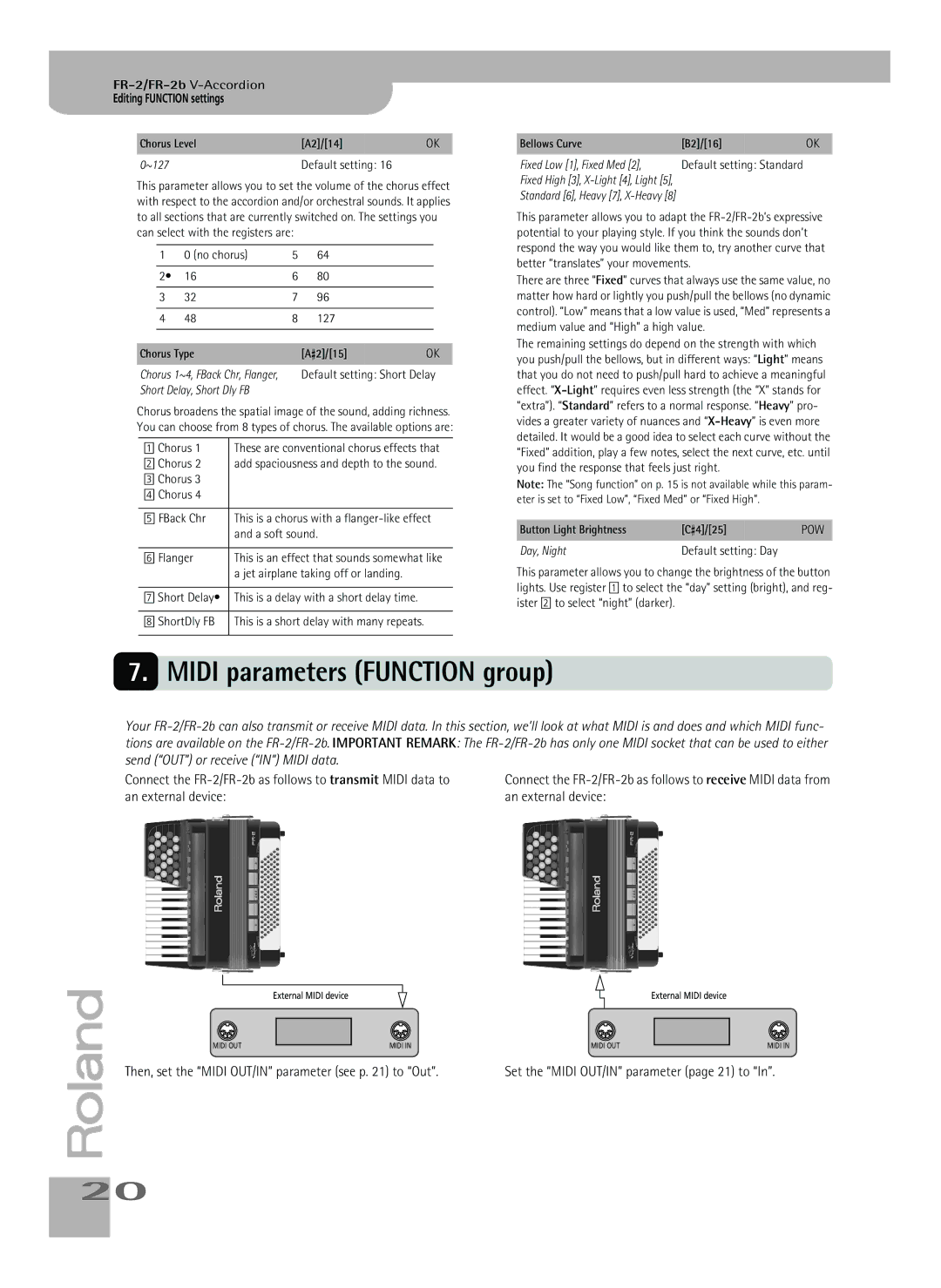
Editing FUNCTION settings
Chorus Level | [A2]/[14] | OK |
0~127 | Default setting: 16 |
|
This parameter allows you to set the volume of the chorus effect with respect to the accordion and/or orchestral sounds. It applies to all sections that are currently switched on. The settings you can select with the registers are:
1 | 0 (no chorus) | 5 | 64 |
2• | 16 | 6 | 80 |
|
|
|
|
3 | 32 | 7 | 96 |
|
|
|
|
4 | 48 | 8 | 127 |
|
|
|
|
Chorus Type | [A#2]/[15] | OK |
Chorus 1~4, FBack Chr, Flanger, | Default setting: Short Delay | |
Short Delay, Short Dly FB |
|
|
Chorus broadens the spatial image of the sound, adding richness. You can choose from 8 types of chorus. The available options are:
[1]Chorus 1 These are conventional chorus effects that
[2]Chorus 2 add spaciousness and depth to the sound.
[3]Chorus 3
[4]Chorus 4
[5] | FBack Chr | This is a chorus with a |
|
| and a soft sound. |
|
|
|
[6] | Flanger | This is an effect that sounds somewhat like |
|
| a jet airplane taking off or landing. |
|
|
|
[7] | Short Delay• | This is a delay with a short delay time. |
|
|
|
[8] | ShortDly FB | This is a short delay with many repeats. |
Bellows Curve | [B2]/[16] | OK |
Fixed Low [1], Fixed Med [2], | Default setting: Standard |
|
Fixed High [3], |
|
|
Standard [6], Heavy [7], |
|
|
This parameter allows you to adapt the
There are three “Fixed” curves that always use the same value, no matter how hard or lightly you push/pull the bellows (no dynamic control). “Low” means that a low value is used, “Med” represents a medium value and “High” a high value.
The remaining settings do depend on the strength with which you push/pull the bellows, but in different ways: “Light” means that you do not need to push/pull hard to achieve a meaningful effect.
Note: The “Song function” on p. 15 is not available while this param- eter is set to “Fixed Low”, “Fixed Med” or “Fixed High”.
Button Light Brightness | [C#4]/[25] | POW |
Day, Night | Default setting: Day |
|
This parameter allows you to change the brightness of the button lights. Use register [1] to select the “day” setting (bright), and reg- ister [2] to select “night” (darker).
7.MIDI parameters (FUNCTION group)
Your
Connect the
Connect the
r
| External MIDI device |
| External MIDI device |
MIDI OUT | MIDI IN | MIDI OUT | MIDI IN |
Then, set the “MIDI OUT/IN” parameter (see p. 21) to “Out”. | Set the “MIDI OUT/IN” parameter (page 21) to “In”. | ||
20
